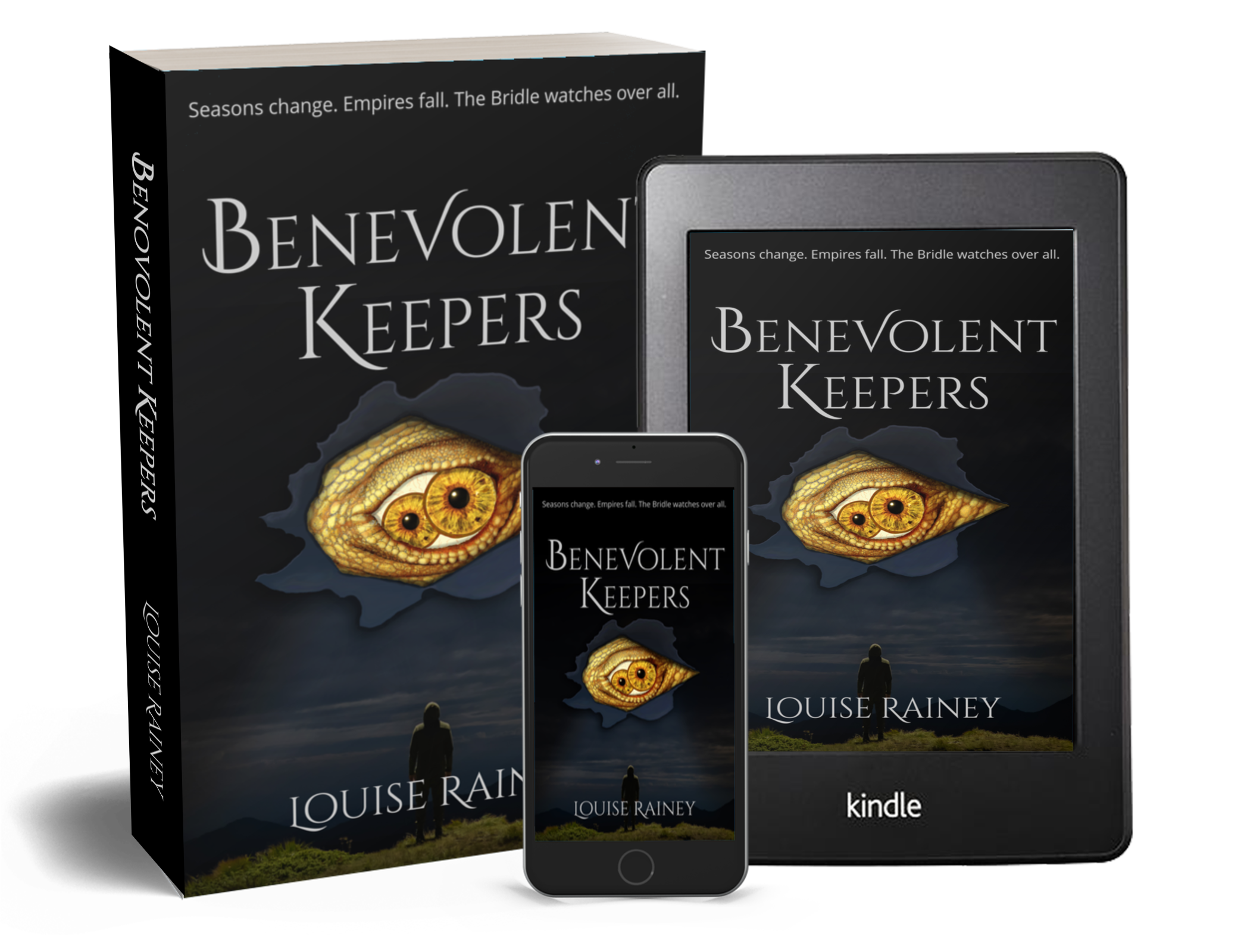In less than a month, my debut novel, ‘Benevolent Keepers’ will hit stores, officially making me a published author. This makes me qualified to create a tutorial for prospective writers everywhere.
A naysayer might point out that my limited experience might make it difficult to create a definitive writing guide, but don’t worry. Confidence is the key to success, and I have nothing but confidence in my own abilities.
Bonus Tip: If you lack confidence, stand in front of the mirror and hype yourself up with positive affirmations. Overuse of this technique may lead to a few side effects. Namely, you may find yourself overconfident or even egomaniacal. Even worse, you won’t be able to recognize these qualities in yourself, which may lead to all sorts of embarrassing behavior. For example, you might create a definitive writing guide before your first published book actually makes it to stores.
Prepare to be amazed and astonished. Without further ado, read on to discover the book-writing process.
Step 1: Obsess over a plotline or character for a minimum of two years. It doesn’t have to be a perfect idea. An imperfect idea is infinitely more interesting to obsess over. Think about your characters until you know every aspect of their personalities. No detail is too minute. If you don’t know what they ate for breakfast on their seventh birthday, you aren’t obsessing enough.
Successful authors may tell you otherwise. Writing is part of the discovery process, they’ll say. These award-winning, multi-millionaire authors claim flexibility is the key to bringing your story alive. Obviously, they’re afraid of revealing their writing secrets. Rigid planning is the only way to bring your characters to life.
Step 2: Quit your job. This may sound extreme, but trust me, it’s the only way. Get a new job where you can turn off your brain. I joined the curbside department of a large store. The work is easy and predictable, which allows me to switch my brain to autopilot. This gives me additional time to obsess over my story.
Step 3: Start writing. Preferably, you should begin in the middle. Why start at the beginning? It would only make your life easier.
Step 4: Create an outline. Most experienced writers will tell you to start with the outline, but that’s just crazy. It’s much better to spend months making plot holes and unnecessary scenes. After you have half of a messy, unusable first draft, create an outline. This allows you to fully appreciate the awesomeness of outlines.
Step 5: Get serious about writing. If you have time for frivolous activities, like showering and paying your taxes, you aren’t committed enough.
Step 6: Get a pair of headphones. Now that you’re focusing all your mental energy on your story, you’re going to need to multitask. Most authors are also avid readers, but you won’t have time to sit down with a novel. The solution? Audiobooks. They aren’t nearly as fun as paper books, but you can listen to them while you go about the tasks that are unfortunately required to maintain a reasonable standard of life. I listen to audiobooks while I’m cooking, cleaning, walking my dog, etc. It’s awful, I know, but if you devote the entirety of your life to writing, your family will get concerned.
Bonus Tip: You can also listen to author podcasts on your headphones. This is a bit of a double-edged sword, as you will either learn valuable tips or spiral into anxiety and depression when you begin comparing yourself to successful authors. If you should go down the latter road, your loved ones may pull you aside for an uncomfortable conversation. The entire point of Step 6 is to avoid these discussions, so pace yourself. You’ll have plenty of time to panic during the later steps.
Step 7: Finish your first draft. You may have the urge to cry uncontrollably. Don’t worry. That’s normal. First drafts are almost always riddled with errors. If you’re satisfied with your first draft, lock it away in a drawer for a few months. When you go back to it, you’ll start noticing problems.
Step 8: Take a brief break from writing. The world may look unfamiliar to you. That’s also normal. You probably haven’t voluntarily left the house in months. When you were forced away from your computer, you were probably too busy daydreaming about your story to notice any details. Reacquaint yourself with the feeling of sunshine on your skin. Figure out who the president is. Double-check that your mom hasn’t adopted a new child to fill the void left by your absence.
Step 9: Revise and edit. Revise and Edit. Edit… and revise. Everyone has a unique process. Even I, in all my author-ly wisdom, can’t tell you how to progress to your final draft. This is also the step where you should do market research. Some people might advise authors to research the market at an earlier stage, but those are probably the same people who advise you to write a book from the beginning.
Bonus Tip: Market research is an annoying necessity. If you are writing to make money, research the market during the beginning steps. I write because I love my story, so I waited until my plot was already set in stone. I didn’t want to compromise my vision by following trends or popular themes. This choice will make your book less marketable, but infinitely more satisfying to write.
Step 10: Attach your name to the most recent draft. If you aren’t mortified by the association, you’re ready to get some fresh eyes on your story. Find beta readers and critique partners to help you find the manuscript’s issues. No matter how many rounds of revision you go through, you’ll never find all the problems on your own. You may also wish to hire an editor to find all the grammatical errors.
Step 11: After you’ve received feedback on your manuscript, repeat Step Nine. If you make significant changes, you may also need to repeat Step 10.
Step 12: After countless revision cycles, finish the hardest sentence you will ever write.
The End.
Author: Louise Rainey
Louise Rainey is an author and apocalypse enthusiast. Although she primarily writes in the fantasy and science fiction genres, she’s been preparing for a myriad of untimely disasters since childhood. It’s possible she might’ve read a few too many survivalist books at an impressionable age. Regardless, she’s ready to rock n’ roll at the first sign of zombies, and a Yellowstone eruption will never take her by surprise. When she’s not preparing for the demise of her Texas home, she’s baking, listening to the same song on repeat, or playing with her gorgeous cat, Robin and her monster-dog Percy.
Louise has a degree in psychology and neuroscience and an unofficial doctorate in Random Ridiculous Knowledge. As a child, she won several writing contests, and she’s been trying to top her blue ribbon at the state fair ever since. Her latest published books include Benevolent Keepers and The Frog Eater.
MAKE THE ULTIMATE CONNECTION!
Subscribe now and receive EXCLUSIVE content before anyone else sees it!





